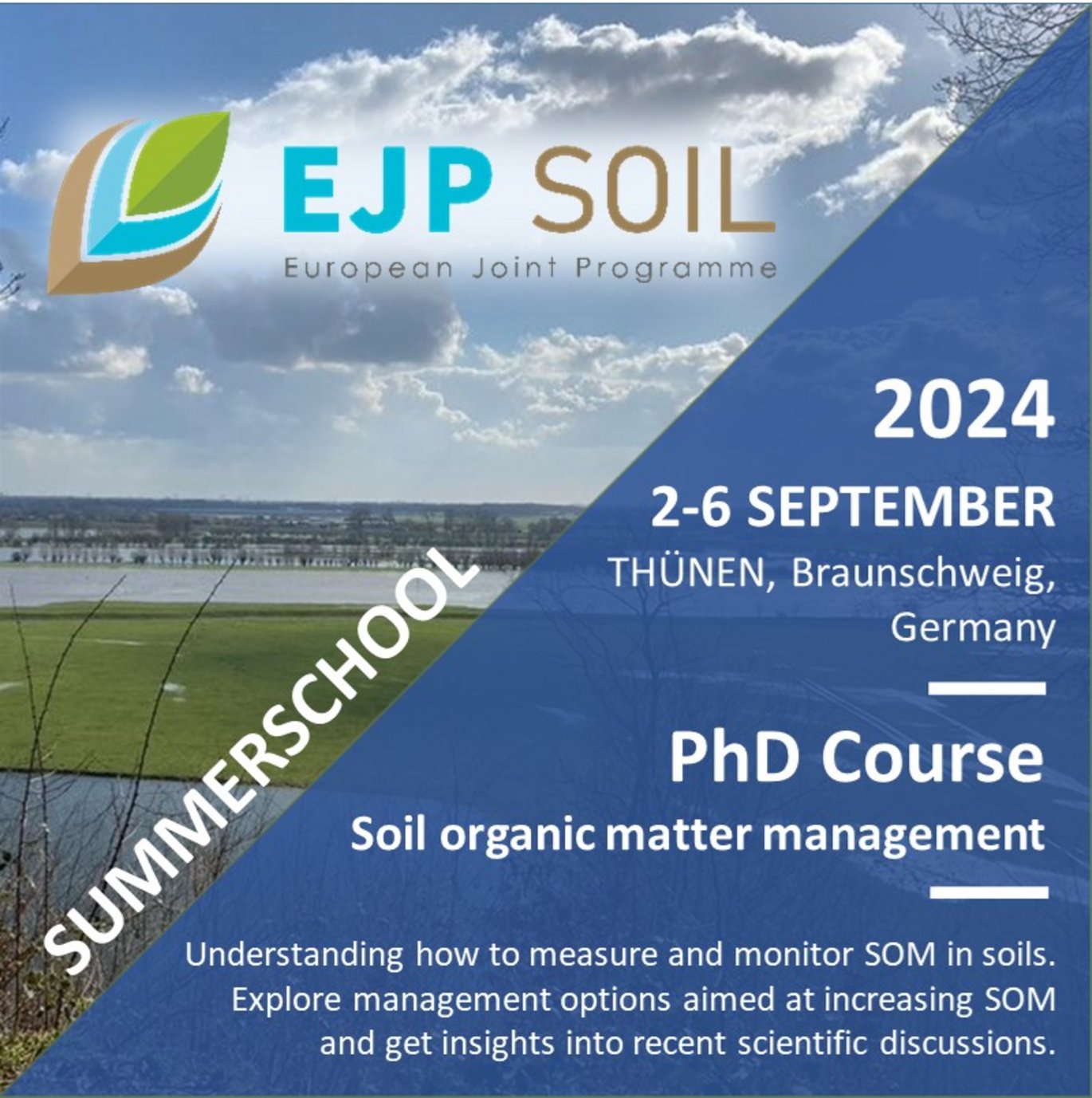PhD Summer school on Soil organic matter management
Which processes influence SOM build up and loss? How so we manage and monitor SOM? In hands-on workshops you will learn how to sample SOM in the field, measure it in the lab and how to correctly calculate SOM stocks using equivalent soil mass. Additionally, you will determine SOM quality using mid-infrared reflectance. On a field trip to different sites around Braunschweig you will see how past and recent SOM management affected soil health and SOM on short term and on long-term.

Info about event
Time
Background
Soil organic matter (SOM) is the organic carbon pool of soils. It consists of plant and animal detritus at various stages of transformation, cells and tissues of soil microbes, and substances that soil microbes synthesize. The accrual of carbon in form of SOM can be managed in agricultural and forest systems by increasing the input of biomass (quantity) and by supplying biomass that is more suitable for stabilization, such as roots biomass (quality). The management of SOM is crucial for maintaining or even increasing soil health, since many processes in the soil depend on it. In addition, increases in SOM and thus carbon, can contribute to mitigate climate change effects. In the best case, this leads to carbon sequestration in soils which is a negative emission technology. Which management options enhance SOM? What are the micro-scale mechanisms of SOM stabilization? How can C accrual in soil be measured? These are questions we will follow during the summer school.
There has never been a time where the topic of soil health and SOM management has been more relevant than now both, in research and in politics. We are now at a cross roads where we need to ensure how to sustainably manage our soils and its SOM. This summer school will give insights into recent scientific discussions and management options around SOM management and provide a platform for discussions and networking.
Course content
In this summer school you will learn through various lectures which processes influence SOM build up and loss as well as how to manage and monitor SOM. In hands-on workshops you will learn how to sample SOM in the field, measure it in the lab and how to correctly calculate SOM stocks using equivalent soil mass. Additionally, you will determine SOM quality using mid-infrared reflectance. On a field trip to different sites around Braunschweig you will see how past and recent SOM management affected soil health and SOM on short term and on long-term.
Costs and reimbursement
The course is free of charge. Costs for travel and accommodation are covered by the EJP SOIL program for participants affiliated with an EJP SOIL partner (see https://ejpsoil.eu/), and are reimbursed after the course.
Program highlights
- Lectures on various aspects of soil organic carbon management
- Laboratory workshop on diffusive reflectance infrared Fourier transform (DRIFT) spectroscopy
- Workshop on SOC stock calculations
- Excursion on short-term and long-term effects of soil organic matter management on soil health
Confirmed lecturers
- Prof. Georg Guggenberger, University of Hannover
- Prof. Carsten Müller, TU Berlin
- Prof. Anke Herrmann, SLU, Uppsala
- Prof. Axel Don, Thünen Institute, Braunschweig
- Christopher Poeplau, Thünen Institute, Braunschweig
Contact
Please do not hesitate to contact Katrin Schulz (katrin.schulz@thuenen.de) if you have any questions regarding the course, or Katharina Meurer (katharina.meurer@slu.se) for questions about reimbursements.
Registration is closed, and there is a waiting list. If you wish to get on the waiting list please contact Katrin or Katharina.